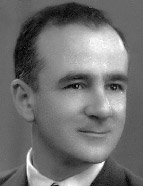

The life of Alexandre Lobato, both personally and as a historian, is closely linked to the history of the Portuguese empire. His life was a back and forth between Portugal and the colonies, particularly Mozambique, the country he comes from. However, he graduated in Portugal, and worked for the Ministry of Overseas Territories, wrote almost entirely about the empire— always strongly favourable to the "greater Portugal"— and he was also a teacher in Mozambique, where he lived through decolonisation and then returned to Portugal. This quick summary shows that— in order to study the historian Alexandre Lobato— we can't escape the problem of colonial domination that was carried out by the metropolis, which at the time was seen by most of the population as a natural and indisputable process.
Alexandre Lobato was born in 1915 in the former Lourenço Marques. He left us memories of this city in an essay called A Cidade das Acácias vermelhas [The City of Red Acacias] ( Quatro Estudos [Four Studies], 1961), in which we get a glimpse of the life of the "white gentile" ( ibidem, p. 151) in a "quiet provincial town thrown into that corner of Africa" ( ibidem, p. 152). However, white Portuguese youth wanted to get their education in the capital. So, after a stay in Timor for his military service, Alexandre Lobato studied law in Coimbra until his third year and then decided to do his degree in Historical-Philosophical Studies at the city's Faculty of Letters, a course he finished in 1949. During his studies he began to write articles and books on history. By then he was older than other students.
This work is financed by national funds through FCT - Foundation for Science and Technology, I.P, in the scope of the projects UIDB/04311/2020 and UIDP/04311/2020.
